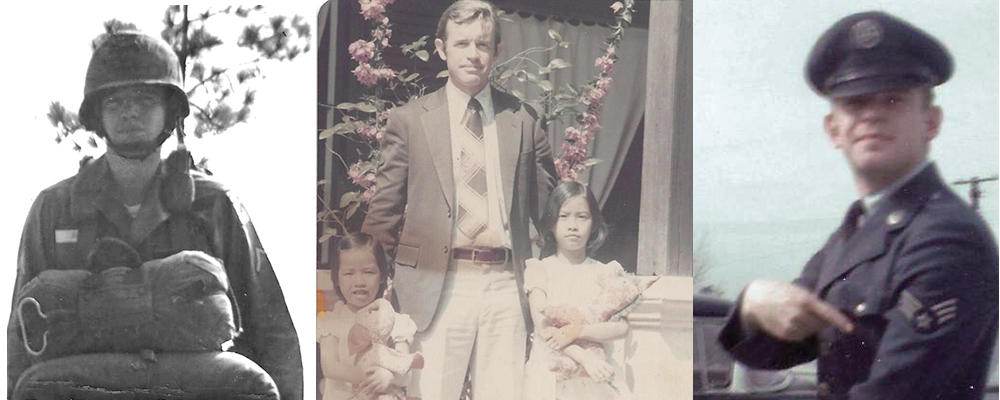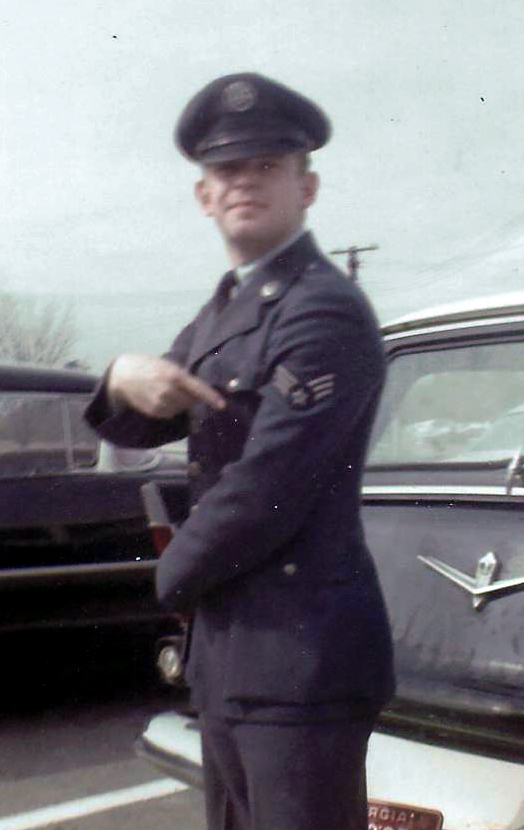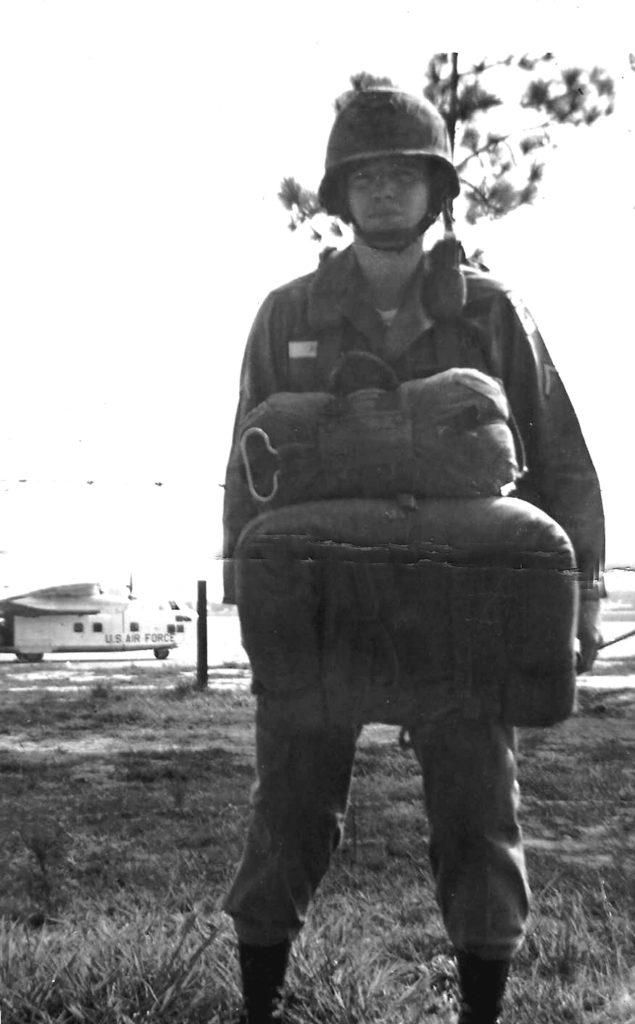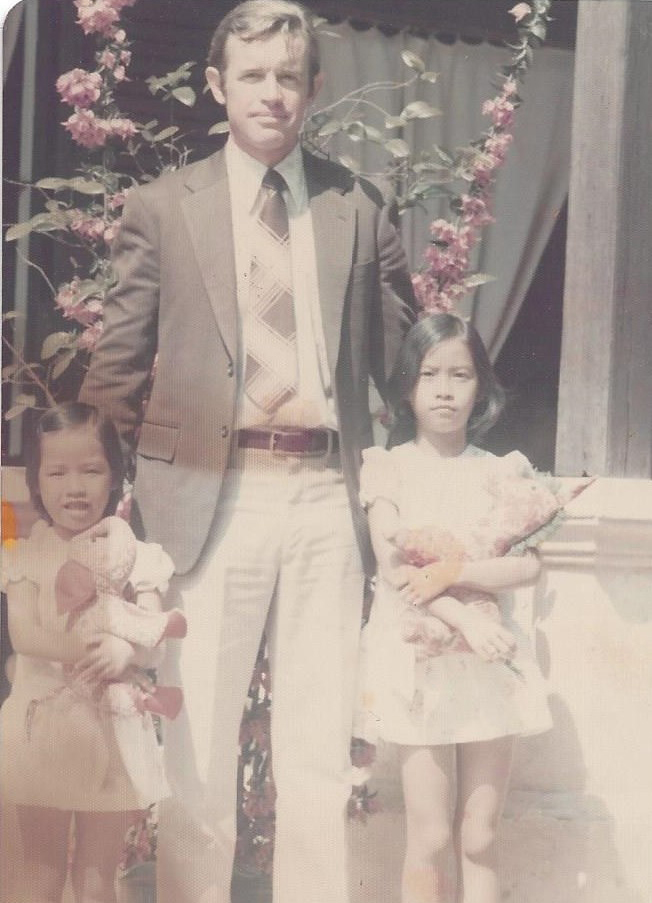
Minh Huebner has been with the Lab since 2004 and is currently the Lab’s Chief Financial Officer. She recently added another responsibility; that of the sponsor of the Lab’s Veterans Employee Resource Group. Minh did not serve in the military, but she is grateful to those who did since they changed her life.
As a child of six, I was evacuated from Saigon on April 22, 1975, sitting on the cargo floor of a C-130 aircraft, along with my nine-year-old sister and my three cousins, all under the age of 15. We were under the care of a family friend, Leonard Chinitz, who was an American lawyer working in Saigon at the time.
We landed at Clark Air Force Base in the Philippines. After a short time there, we were flown to Guam where we lived in a refugee tent camp set up by and operated by the U.S. military. We stayed in Guam for a while before Leonard, my sister, and I were flown to Camp Pendleton, a U.S. Marine Corps Base in California, which served as one of the many stateside refugee processing camps. We only stayed in Camp Pendleton a short time as Leonard was able to arrange for us to take a commercial flight to Washington, D.C. to reunite with my mother who had been taking classes at American University.
Meanwhile, my soon-to-be stepfather, Kirk Agon, an American businessman who was living and working in Vietnam, stayed in Saigon to get as many of my mother’s family who wanted to leave for Tan Son Nhut airbase for evacuation. He managed to leave via helicopter from Saigon onto the very last U.S. aircraft carrier in the area as the North Vietnamese army was entering Saigon. We reunited as a family in the middle of May in Washington, D.C. once dad arrived.
Our family has a strong connection to the military. Dad’s two brothers – Theodore Agon and Stuart Agon – served in the armed forces. Uncle Ted was in the United States Air Force from 1961 to 1967, serving four years of active duty and two years in the reserves. He was at Chanute Air Force Base, Illinois, and then was an electronics instructor at Robins Air Force Base, Georgia. He left the service at the rank of Staff Sergeant. Uncle Stu was in the U.S. Army, served with the 5th Special Forces Group, and was in Vietnam as a Green Beret in 1965, his last year in the service. My dad was drafted into the army but was rejected due to flat feet. My mother’s brothers and brother-in-law served in the South Vietnamese army and received training and support from the U.S. military.
Several groups at the Lab, the Veterans Employee Resource Group, Human Resources, and the Diversity and Inclusion Office are sponsoring a veterans outreach and hiring symposium on Thursday, June 4 from noon to 1 p.m. Add it to your calendar.
Q: Your role as CFO keeps you busy. Why did you want to be the sponsor of the Veterans Employee Resource Group (VERG)?
A: I have the U.S. military to thank for providing my family with safe passage to the U.S. as wartime evacuees and immigrants. Being a sponsor of VERG is a way for me to support them in return. Members of the military were responsible for getting my family out of Saigon and keeping us safe until we could be reunited with my family in the United States.
Q: VERG is co-sponsoring the hiring symposium on June 4. What would people take away from the session?
A: Veterans bring a proven skillset when they come to work with us at the Lab. Their military experience has taught them teamwork and problem-solving skills that can be an asset in any area or division of the Lab. We want managers to consider veterans as part of their outreach, diversity, and inclusion strategy in hiring.
Q: The session is also covering a new certification that can be added to performance goals, Veterans at Work. What does the certification cover, and how is it valuable to a supervisor or manager at the Lab?
A: The certification shows you have learned some of the best practices for hiring and engaging employees who are veterans, and that you are committed to recruiting and retaining veterans. The Lab misses out when our teams do not reflect the diversity of our community, and we need to remember that our definition of diversity includes our veterans.
From left:
Uncle Ted, 1964, after he received his promotion to Airman 1st class
Uncle Stu at Fort Bragg, North Carolina, in 82nd Airborne parachute training
Minh, with her father Kirk Agon, and her sister, in Vietnam


